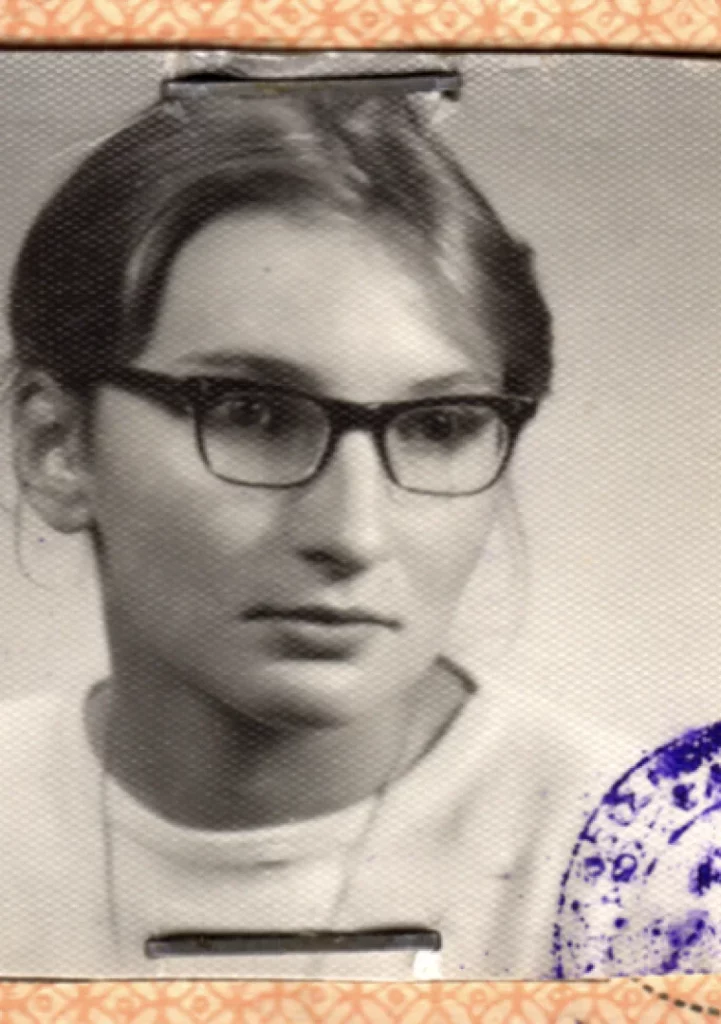
I was sixteen years old when the anti-Semitic campaign began. It initially felt like an adventure. My best friend and I went to Nowy Świat on March 8th. I was going to pick up a pair of glasses in a shop. We weren’t students, we had no contacts with anyone, we just knew something was going on.
At first, the demonstration was fairly calm. Then we started walking towards Krakowskie Przedmieście to see what happens. Somewhere near the church, towards the end of Nowy Świat, things got brutal. I saw how people were beaten, how people ran and smelled the tear gas. My friend Asia got scared and wanted to leave. Then we met our math teacher. She attended the demonstration and saw us. “What the hell are you doing here? Go home at once!”
I was not afraid, but was thinking: how can they hit people who don’t have guns? The students walked arm in arm, in proximity. They were a mass, like a single body. Then the police came, uniformed, in special cars. The next day we were confined to our school, from 8.00 to 17.00. The doors were locked. All secondary schools were closed for several days.
After that, things got worse. I had a geography teacher who had been an inmate in Auschwitz, but who was not Jewish. A few days after the demonstration, during a lesson, he says to the whole class, “The Jews are a cancer on the Polish body.” And I have to tell you, that became my trauma. I froze.
In my dreams, I would have punched him in the face, but I froze. At that moment, I understood people who are paralyzed by shock. He didn’t hit me; he didn’t even know I was Jewish. Another girl, who came from a Polish family of nobility, said: “You can’t say that!” That was her, not me!
It was a very strong experience, that I couldn’t fight back.
(Source: Anna Grinzweig Jacobsson, The Escape to Marstrand)